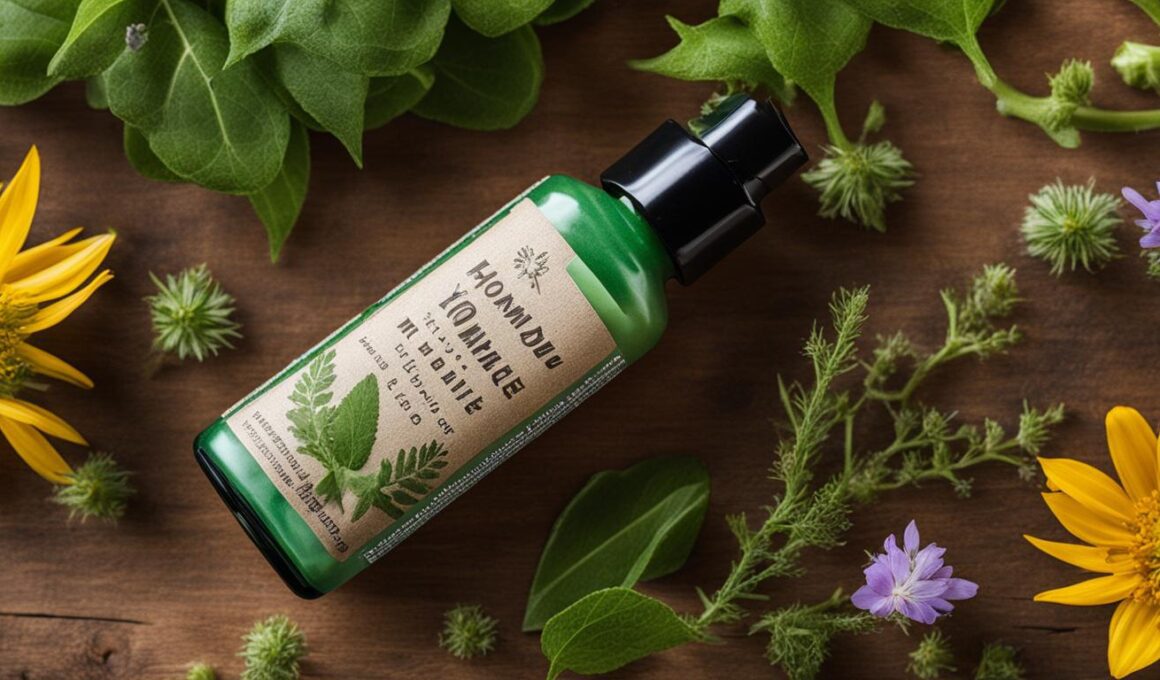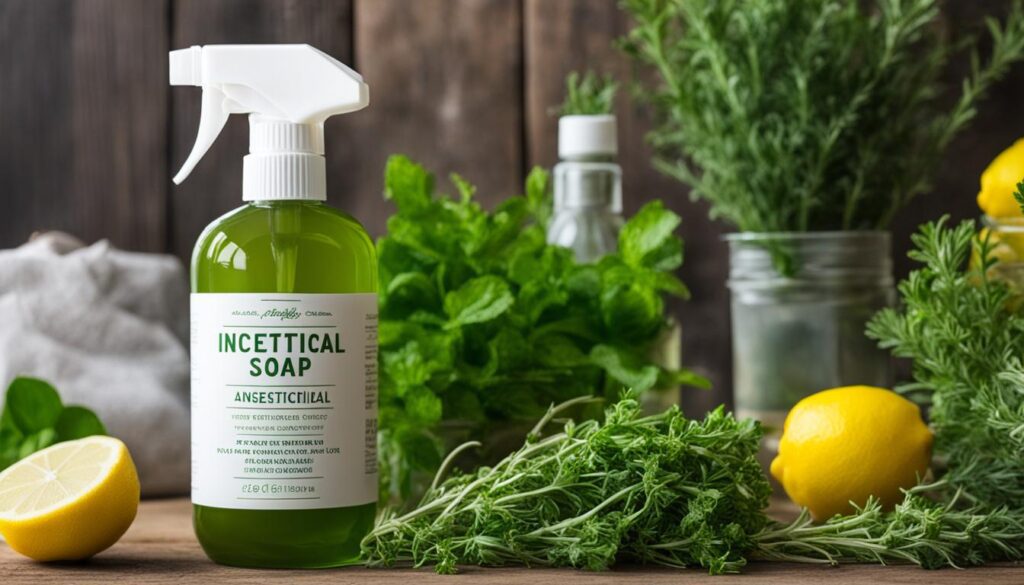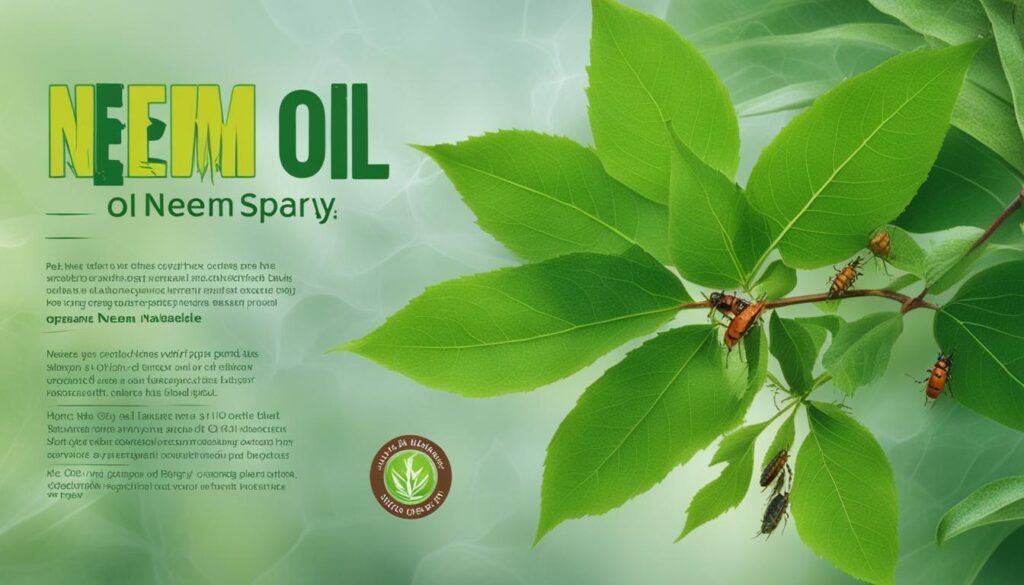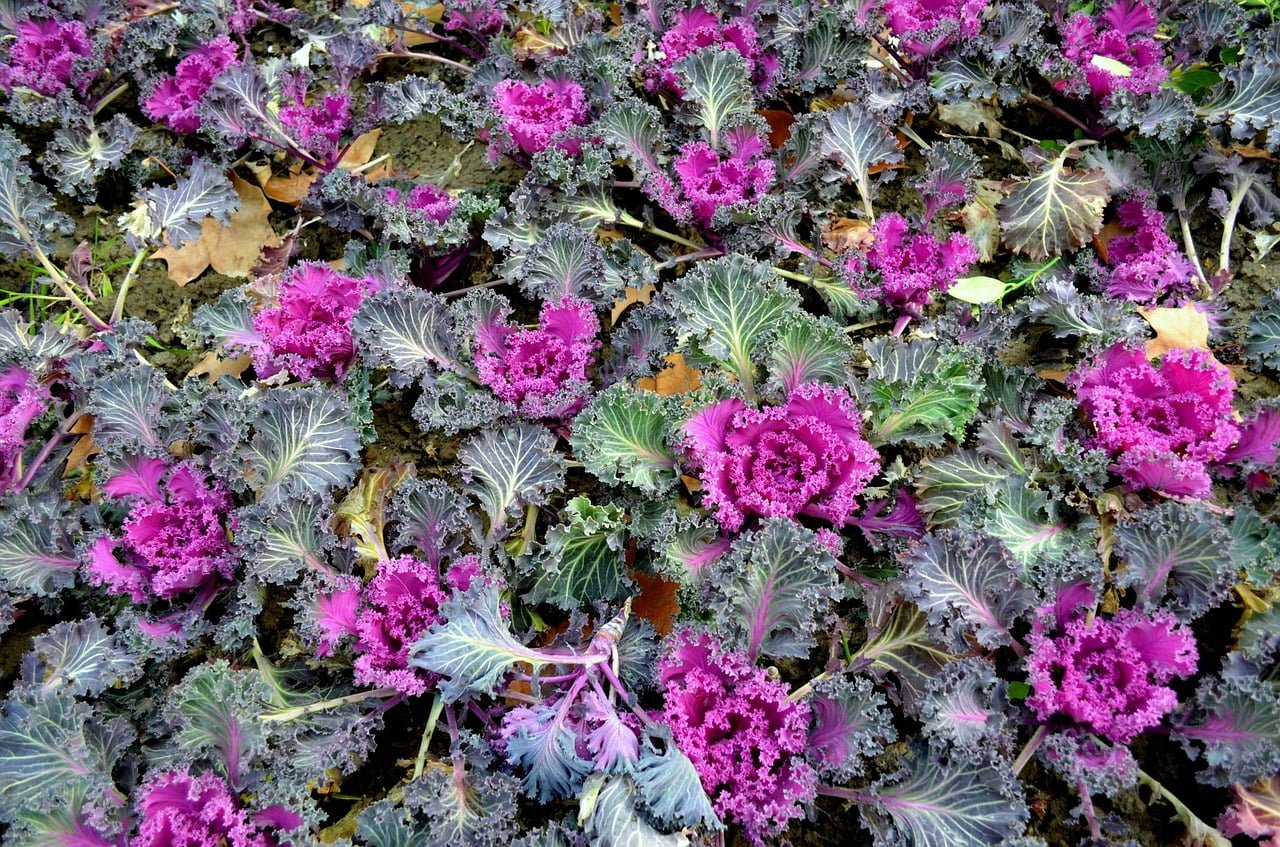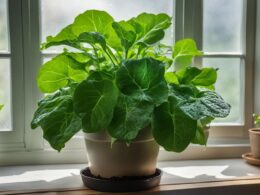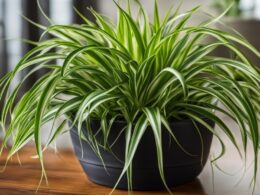Insects can sometimes damage our gardens and plants, but commercial insecticides often contain toxic chemicals that are not ideal for sustainable gardening. Homemade insect sprays offer a natural and effective alternative. They can be made from common ingredients found in your store cupboard and are effective against aphids, mites, thrips, and other pests. Homemade bug sprays should be used as a short-term solution while also promoting a healthy ecosystem by attracting beneficial insects. It’s important to patch-test any spray before using it on your plants and avoid spraying during the hot part of the day to prevent leaf burn.
Key Takeaways:
- Homemade insect sprays are a natural and effective alternative to commercial insecticides.
- They can be made from common household ingredients and are safe for sustainable gardening.
- Homemade bug sprays attract beneficial insects and can be used as a short-term solution.
- Patch-test any spray before using it on your plants and avoid spraying during the hot part of the day.
- By using homemade bug sprays, you can protect your plants without compromising sustainability.
Insecticidal Soap: A Homemade Bug Spray for a Wide Range of Pests
Insecticidal soap is a popular homemade bug spray that can effectively treat a wide range of pests in your garden. Made from common kitchen ingredients, this natural alternative is safe for your plants and the environment. It is particularly effective against pests such as aphids, lacebugs, leafhoppers, mealybugs, and thrips.
To make your own insecticidal soap, combine vegetable oil and dishwashing soap or pure Castile liquid soap. Dilute the mixture with warm water and transfer it to a spray bottle. Before using, shake well to ensure the ingredients are thoroughly mixed. When applying the spray to your plants, make sure to cover both the tops and undersides of the leaves, as pests often hide on the undersides.
Insecticidal soap works by suffocating pests, causing them to dehydrate and ultimately perish. It is important to note that this spray should be used as a concentrate and diluted with water before each use, as undiluted soap can damage your plants. Additionally, it is advisable to test a small area of your plants before proceeding with full-scale application to ensure they do not have any adverse reactions.
Benefits of Using Insecticidal Soap:
- Safe for plants and the environment
- Effective against a wide range of pests
- Made from common kitchen ingredients
- Easy to prepare and use
- Does not leave harmful residues
Using homemade insecticidal soap can help you maintain a healthy and pest-free garden without resorting to harsh chemicals. By harnessing the power of natural ingredients, you can protect your plants while promoting a sustainable gardening approach.
Neem Oil Bug Spray: An Organic Solution for Pest Control
Are pests wreaking havoc on your garden? Don’t worry, there’s a natural and effective solution – neem oil bug spray. This organic insecticide has gained popularity for its ability to repel and eliminate a wide range of pests, including mites, whitefly, aphids, thrips, and mealybugs. Neem oil is also effective against powdery mildew, making it a versatile tool for maintaining the health of your plants.
Making your own homemade neem oil spray is easy. All you need is pure, cold-pressed neem oil, water, and a small amount of dish soap. Mix these ingredients together, and you’ll have a powerful natural insecticide at your disposal. This homemade spray can be applied to the tops and undersides of plant leaves, as neem oil is absorbed by the plant tissue and only affects insects that ingest the plant. This makes it safe for beneficial insects, birds, and pets, while effectively targeting and controlling garden pests.
By utilizing neem oil bug spray, you can protect your plants without resorting to harmful chemicals. Say goodbye to toxic insecticides and embrace the power of nature in your garden.
Key Takeaways:
- Neem oil bug spray is an organic and effective solution for controlling garden pests.
- It repels and eliminates pests such as mites, whitefly, aphids, thrips, and mealybugs.
- Neem oil is also effective against powdery mildew.
- Make your own homemade neem oil spray using pure, cold-pressed neem oil, water, and dish soap.
- Apply the spray to the tops and undersides of plant leaves to target and control pests while preserving beneficial insects.
Vinegar Spray: A Natural Solution for Garden Pests
Vinegar is a versatile ingredient that can be used as a natural bug spray in the garden. It is effective against a wide range of pests and can also repel ants. To make a homemade vinegar spray, mix white vinegar with water and add a small amount of dishwashing soap to help the solution adhere to the plants. Spray the mixture onto the affected areas of your plants, making sure to cover the undersides of leaves for pests like whiteflies. Vinegar has a strong odor that can repel certain pests, but it requires direct contact to be effective. Adding essential oils or citrus peels can help temper the smell when using vinegar spray on houseplants.
Here are some key benefits of using vinegar spray as a natural bug repellent:
- Vinegar is readily available and inexpensive, making it a cost-effective option for pest control in the garden.
- It is non-toxic and safe for use around children, pets, and beneficial insects.
- Vinegar can be used on a variety of plants, including ornamentals, vegetables, and herbs.
- It not only repels pests but also helps prevent fungal diseases, such as powdery mildew.
However, it’s important to note that vinegar spray may not be effective for all pests and may need to be reapplied regularly. It is best used as a preventative measure or as part of an integrated pest management approach. Additionally, vinegar may alter the pH of the soil, so it should be used sparingly and with caution, especially on plants that prefer acidic or alkaline conditions. Patch testing on a small portion of the plant is recommended before applying vinegar spray to the entire plant to ensure it does not cause any adverse effects.
Garlic Spray: Harnessing the Power of Garlic to Repel Pests
When it comes to natural pest repellents, garlic is a powerful ally in your garden. Its pungent odor and unique compounds make it an effective deterrent for a variety of pests, including aphids, slugs, and carrot flies. By harnessing the power of garlic, you can protect your plants without resorting to harmful chemicals.
To make your own homemade garlic spray, the process is relatively simple. Start by pureeing garlic cloves with vegetable oil, allowing it to sit overnight. Next, strain the mixture and add a small amount of mild liquid soap and water. This potent mixture can now be stored in the refrigerator and used as needed.
When applying garlic spray, it’s important to target the leaves of your plants, as this is where pests tend to congregate. The best time to use garlic spray is in the evening, as it allows the solution to sit on the plants overnight and maximize its effectiveness. Regular application of garlic spray can both treat existing infestations and act as a preventative measure to repel pests.
Benefits of Garlic Spray:
- Natural Pest Repellent: Garlic spray is a safe and natural alternative to chemical pesticides, making it ideal for sustainable gardening practices.
- Cost-Effective: Making your own garlic spray at home is a budget-friendly option, as garlic is commonly found in kitchens and inexpensive to purchase.
- Easy to Make: With just a few simple ingredients and a bit of preparation, anyone can create their own homemade garlic spray.
- Safe for Beneficial Insects: Unlike chemical pesticides, garlic spray is selective in its effects and does not harm beneficial insects or pollinators in your garden.
“Garlic spray is a powerful natural repellent that can help protect your plants from a wide range of pests. Its effectiveness, cost-effectiveness, and safety for beneficial insects make it a popular choice for gardeners.” – Gardening Expert
Tomato Leaf Spray: Utilizing Tomatoes’ Natural Defense Mechanism
When it comes to natural insecticides, tomato leaf spray is a hidden gem in your garden arsenal. Tomato plants naturally produce a compound called alkaloid, which acts as a defense mechanism against pests. By harnessing this natural defense, you can create a homemade tomato leaf spray that effectively deters aphids and mites from infesting your plants.
To make tomato leaf spray, simply chop up tomato leaves and steep them in water overnight. The alkaloid compounds will be extracted into the water, creating a potent spray. Strain the mixture and pour it into a spray bottle for easy application. This natural insecticide can be applied directly to the leaves of your plants, creating a barrier that pests find unappealing.
It’s important to note that tomato leaf spray should only be used on tomato plants and should not be applied to other nightshade plants, such as eggplants, peppers, or potatoes. This is because tomato leaf spray can potentially spread diseases specific to those plants. However, for your tomato plants, tomato leaf spray provides a natural and effective way to protect them from unwanted pests.
Cinnamon Spray: A Natural Solution for Fungal Diseases and Insects
Cinnamon, a common spice found in every kitchen, can be a powerful ally in your fight against fungal diseases and insects in your garden. This natural solution offers a safe and effective alternative to chemical-based products. Using cinnamon spray can help protect your plants and promote their overall health.
“Cinnamon spray acts as a natural fungicide and insecticide, providing a dual defense against common garden pests,” explains gardening expert Jane Miller. “Its anti-fungal properties help prevent and control diseases like powdery mildew and damping-off, while its strong scent acts as a deterrent for insects.”
The Benefits of Cinnamon Spray
“Cinnamon spray is not only effective, but it is also safe for your plants, beneficial insects, and the environment,”
Unlike chemical-based sprays, cinnamon spray poses no harm to beneficial insects like bees and ladybugs, which play a vital role in pollination and pest control. Additionally, using homemade cinnamon spray helps prevent the buildup of harmful chemicals in the soil and water sources, promoting a healthy and sustainable gardening practice.
Making Your Own Homemade Cinnamon Spray
To create your own cinnamon spray, simply mix cinnamon powder with warm water and let it steep overnight. Strain the mixture to remove any solid particles, and then transfer it to a spray bottle. Apply the cinnamon spray to your plants, focusing on the leaves and stems, to protect them from fungal diseases and repel insects. Repeat the application every two weeks or after heavy rain for optimal results.
Remember to always perform a patch test on a small area of your plant to ensure there is no adverse reaction before spraying it on the entire plant. And as with any homemade spray, it’s best to apply cinnamon spray during cooler parts of the day to avoid leaf burn.
Incorporating cinnamon spray into your gardening routine can help keep fungal diseases and pests at bay, allowing your plants to thrive naturally. Its simplicity and effectiveness make it an ideal choice for those looking for a natural and eco-friendly solution for their garden.
Conclusion
Crafting your own homemade bug sprays offers a safe, effective, and eco-friendly solution for natural pest control in your garden. By using common ingredients found in your kitchen, you can create homemade plant sprays that are not only effective against a wide range of pests, but also promote a sustainable and healthy ecosystem.
Insecticidal soap, neem oil spray, vinegar spray, garlic spray, tomato leaf spray, and cinnamon spray are all natural options that can be easily made at home. These homemade bug sprays are effective against pests such as aphids, mites, thrips, and fungal diseases, providing you with a versatile arsenal to protect your plants.
By incorporating these homemade plant sprays into your gardening routine, you can maintain a beautiful and thriving garden without resorting to harmful chemicals. Not only are homemade bug sprays better for the environment, but they also ensure the safety of beneficial insects, birds, and pets.
So, next time you encounter garden pests, turn to these DIY solutions for natural pest control. Embrace the power of homemade bug sprays and enjoy a sustainable and pest-free garden all season long!
– Can I Use the Homemade Bug Spray on Plants Without Harming Them?
Yes, you can use the homemade bug spray safe for plants without harming them. Using natural ingredients like essential oils and garlic can effectively repel pests without damaging your plants. Just make sure to test a small area first and dilute the spray properly to avoid any adverse effects.
FAQ
Can homemade bug sprays effectively control garden pests?
Yes, homemade bug sprays can be a natural and effective alternative to commercial insecticides. They are often made from common ingredients found in your store cupboard and can be effective against pests like aphids, mites, thrips, and more.
How do I ensure the homemade bug spray is safe for my plants?
It is important to patch-test any homemade bug spray before using it on your plants. Additionally, avoid spraying during the hot part of the day to prevent leaf burn.
What is insecticidal soap and how can I make it at home?
Insecticidal soap is an effective homemade bug spray made from soap, oil, and water. To make it at home, combine vegetable oil and dishwashing soap or pure Castile liquid soap. Dilute the mixture with warm water and spray it onto your plants as a concentrate that needs to be diluted with water before use.
What is neem oil and how can I make a homemade neem oil spray?
Neem oil is an organic insecticide that can repel and eliminate pests like mites, whitefly, aphids, and more. To make a homemade neem oil spray, mix pure, cold-pressed neem oil with water and a small amount of dish soap. Spray the solution onto the tops and undersides of plant leaves.
Can vinegar be used as a natural bug spray in the garden?
Yes, vinegar can be effective against a wide range of pests and can also repel ants. To make a homemade vinegar spray, mix white vinegar with water and a small amount of dishwashing soap. Spray the mixture onto the affected areas of your plants, including the undersides of leaves.
How can I use garlic as a natural pest repellent?
Garlic can be a powerful natural repellent for pests in the garden. To make homemade garlic spray, puree garlic cloves with vegetable oil, let it sit overnight, strain the mixture, and then add mild liquid soap and water. Spray the mixture on the leaves of your plants in the evening.
How can tomato leaves be utilized as a natural insecticide?
Tomato leaves contain a compound called alkaloid, which can be used as a natural insecticide. To make tomato leaf spray, chop up tomato leaves and steep them in water overnight. Strain the mixture and pour it into a spray bottle. Apply the spray to the leaves of plants to deter aphids and mites.
Can cinnamon be used as a natural spray for fungal diseases and insects?
Yes, cinnamon can be used as a natural spray to control fungal diseases and repel insects. To make cinnamon spray, mix cinnamon powder with warm water and let it steep overnight. Strain the mixture and pour it into a spray bottle. Use the spray to mist the potting soil and plants or create a barrier against insects and mushrooms.
How can I create homemade bug sprays without harmful chemicals?
By using ingredients like insecticidal soap, neem oil, vinegar, garlic, tomato leaves, and cinnamon, you can create effective homemade bug sprays without relying on toxic chemicals. These natural options are safe for beneficial insects, birds, and pets, promoting a healthy and sustainable garden.





